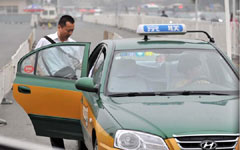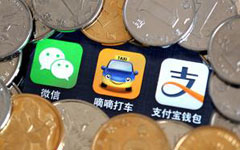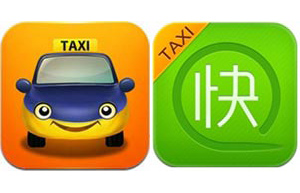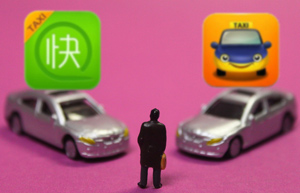Taxi apps are causing turbulence at Beijing Capital International Airport with some passengers getting taxis quickly while others are left with a sense of being grounded, airport authorities said.
The airport witnessed a rising number of passengers using the apps as they returned to Beijing after the Spring Festival holiday.
Instead of waiting in the long line for taxis at the airport, many used the taxi-booking apps.
 |
|
 |
|
 |
But this has disrupted normal service at the airport, said Li Xiaomei, a spokeswoman for the airport.
Li said the airport will discuss the situation with Beijing's traffic authorities, which supervise ground transport in the airport area.
According to a regulation released in 2012, taxi drivers have to receive passengers in a specific area and are not allowed to operate their business in a car park or the airport's departure area.
However, taxi drivers are allowed to enter the parking lot after their cars are reserved by passengers, according to the regulation.
The airport admitted that the regulation released in 2012 did not mention apps that have become increasingly popular in the last year.
Cao Haijun, a cab driver in Beijing, said he frequently relied on passengers using apps in the airport.
Passengers can reserve a taxi in advance, allowing drivers to enter the airport without violating regulations, he said.
Wang Jiansheng, a veteran taxi driver in Beijing, said sometimes drivers wait for hours at the airport only to get a fare for a short journey.
Wang, from Beifang Taxi Co, said the popularity of the apps was that both parties knew in advance the journey details before any deal was made.
Two waiting sections should be established, Wang suggested, one for long journeys and the other for shorter trips.
In January, Internet giants Tencent and Alibaba both launched similar promotion campaigns to encourage drivers and passengers to use the taxi-booking apps by giving both drivers and passengers subsidies for doing so.
Didi Dache, the taxi-hailing app in cooperation with Tencent, announced that from Jan 10 to Sunday, taxi trips booked via the mobile payment platform reached 21 million in 58 cities across the country.
Subsidies for passengers and drivers reached 400 million yuan ($66 million) during the campaign, according to a statement by Didi provided to China Daily.??
|
 |
 |
| Taxi apps battle for customers |
